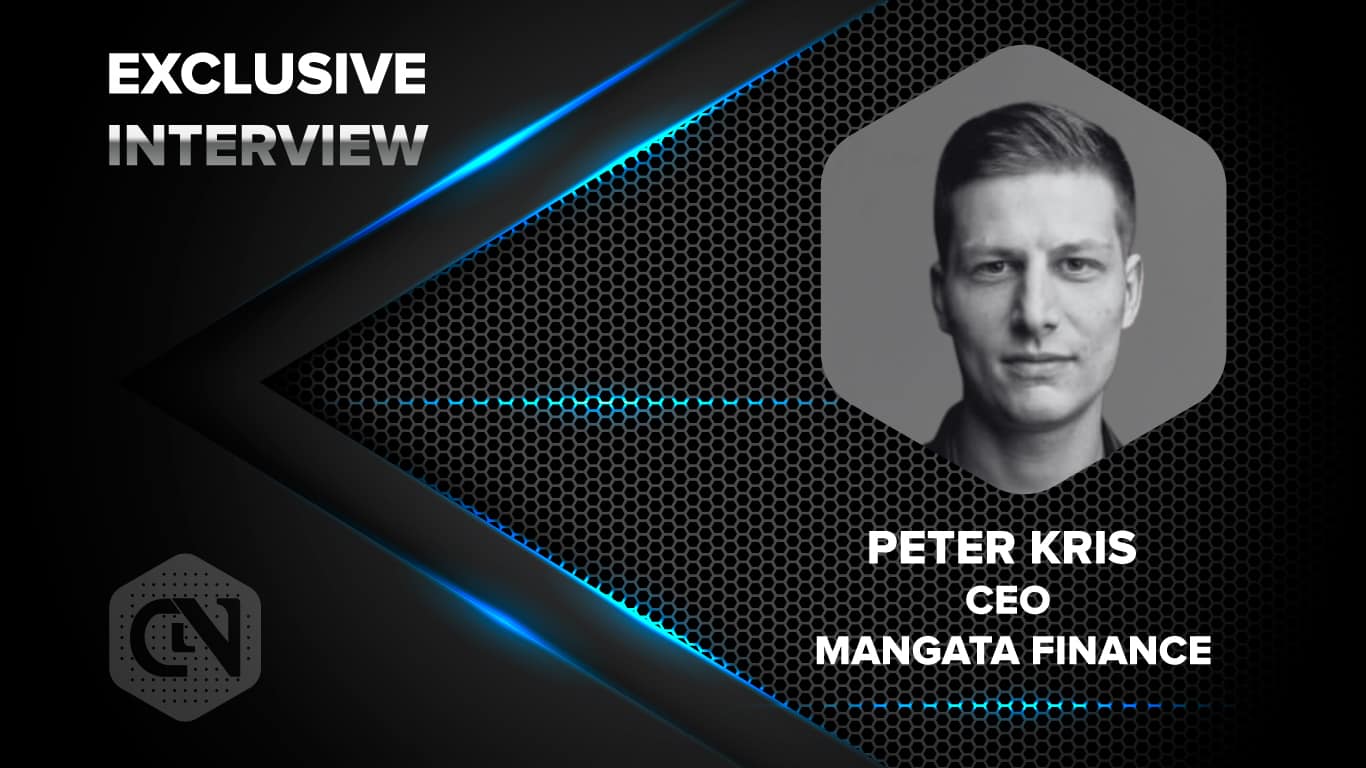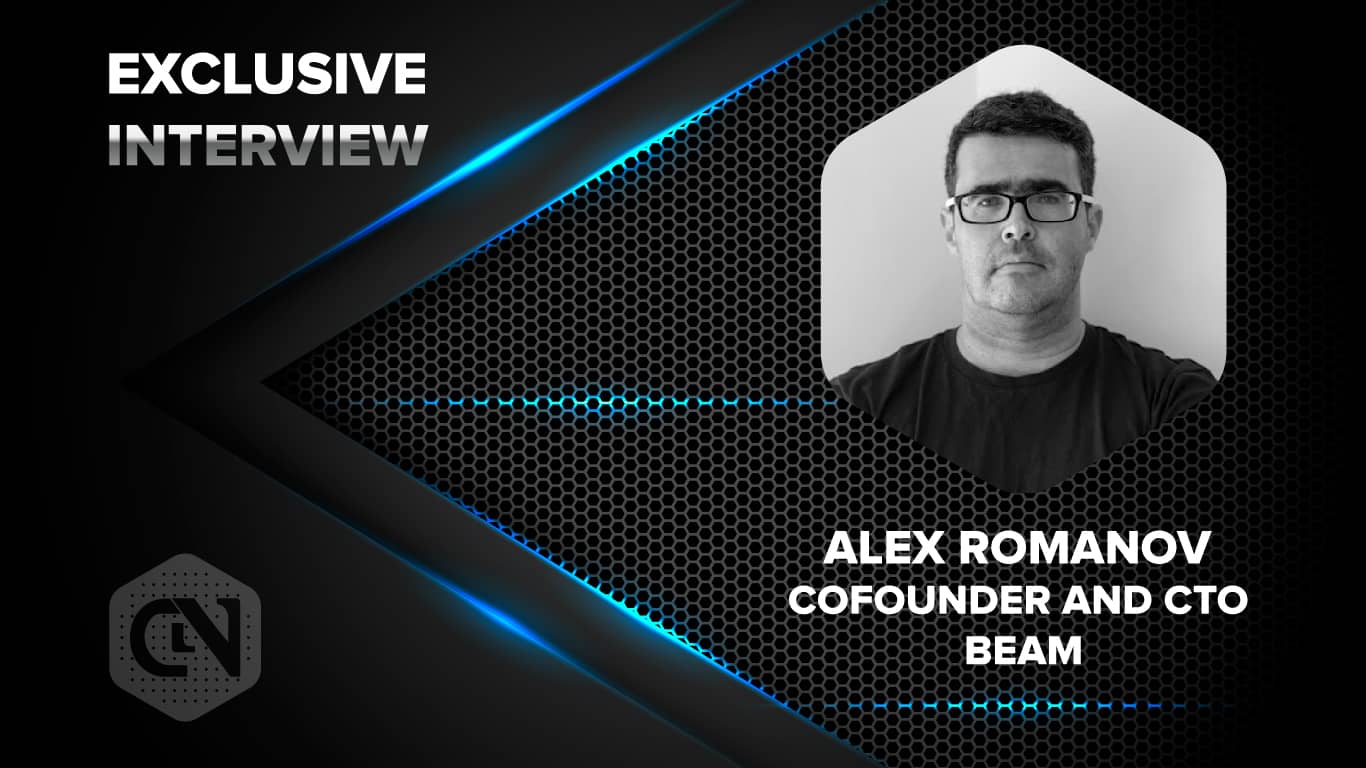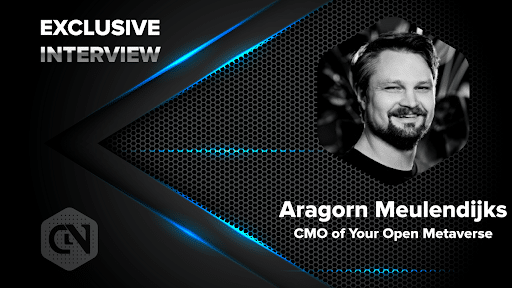Advertisement
Advertisement
Team CryptoNewsZ is in conversation with Nicholas Douzinas, the Co-Founder and Head of Business Development at Ajuna Network, a Swiss-based platform bringing blockchain gaming into the mainstream by integrating GameFi functionality with the world’s leading development engines, Unreal and Unity. Douzinas has rich entrepreneurship experience, fuelled by his passion for the intersection of technology and business, and holds a Bachelor of Science in Economics from the University of Warwick and an MSc in International Health Management from Imperial College London.
CryptoNewsZ: Welcome to CryptoNewsZ, Nicholas; it’s a pleasure to interact with you today! What sparked your interest in crypto and blockchain? What led to your innings at Ajuna Network?
After starting my career in finance, I got involved with several tech startups – which led me directly into the exciting world of blockchain, where so much is happening. I have always been an ardent gamer, so working for Ajuna combines my passions for video games, blockchain, and entrepreneurship.
CryptoNewsZ: What makes Ajuna Network stand out from the crowd? Is the team trying to address specific problems in the blockchain ecosystem?
Blockchain gaming is really creative but hasn’t yet realized its full potential. Game developers need to spend too much time manually coding connections to the blockchain in unfamiliar languages, leaving them less time to work on graphics, world-building, storytelling, and gameplay. In addition, many developers feel restricted by technical constraints, such as the performance issues caused by slow block times.
We’re committed to making blockchain-based games as exciting and responsive as traditional titles. NFTs can really add an extra layer of jeopardy and excitement to the gaming experience. Still, developers need to be given the freedom to focus on creating a vibrant economy and immersive gameplay rather than worrying about blockchain technicalities.
Ajuna will make it easy to build substrate-based blockchain games using familiar, powerful, industry-standard gaming engines like Unity and Unreal Engine. By providing an easy-to-use toolbox for blockchain game development, we aim to increase the number of developers working on blockchain games. This will expand the pool of development talent in the space, resulting in new ideas and a wider range of games. We’ve also significantly improved responsiveness using second-layer sidechains so that gameplay is faster and more immersive.
CryptoNewsZ: According to you, what is the one breakthrough that needs to happen to propel blockchain and crypto into mainstream use?
It can’t really be reduced to one thing, but I really believe gaming will play a huge part. Gamers tend to be relatively tech-savvy by nature and are frequently among the early adopters of new technologies. As blockchain games become faster and more graphically rich, the distinction between conventional and Web3 games will begin to erode. There are over 3 billion gamers globally; even if blockchain gaming achieves a modest market share, that would still mean millions of new people interacting with blockchain-based assets. In a sense, blockchain gaming is also laying the groundwork for a decentralized metaverse, so its importance for future crypto adoption cannot be overstated.
CryptoNewsZ: How big do you feel is the potential market for blockchain gaming?
The closer blockchain games get to the performance of traditional titles, the bigger the market potential becomes. Over $30 billion is generated each year globally from microtransactions alone in the traditional market. Suppose we can make games as graphically rich and responsive as conventional titles while adding the unique incentives offered by NFTs and digital assets. In that case, blockchain gaming could capture a significant share of that market. And unlike traditional gaming, where most of the value flows to the top, gamers and creators will jointly benefit as the sector grows.
CryptoNewsZ: What are your thoughts on large gaming studios entering the crypto space?
They say that imitation is the sincerest form of flattery. If the big studios are starting to direct greater resources towards blockchain, it demonstrates that they see the potential for market growth, so it’s a good sign. Personally, I think it’s great to see some big players getting involved as it will bring greater resources, larger budgets, and established distribution channels to bear. However, big studios might not find it as easy as they expect to compete with blockchain-native games, particularly those that use blockchain to create a deeper sense of community and give gamers a genuine say over the future direction of the games they love.
But if it means that more people know about blockchain games and play them, that will ultimately be good for the entire space.
CryptoNewsZ: Where do you see the cryptocurrency and blockchain space in the next decade?
Ten years from now, blockchain isn’t going to be just a niche anymore. The pandemic already showed us how much fun it can be to hang out in virtual spaces, and the metaverse will evolve so much faster from here, all built on blockchain. People won’t be asking if you’re into crypto any more than they now talk about “being on the internet” – it’s just assumed, and it’s part of the fabric of everyday life. We’re going to see the same curve.
CryptoNewsZ: What sort of reception has your platform received from developers and gamers?
So far, the response has been really positive. Many game developers we meet tell us that Ajuna would have saved them so much time if it had been available when they started out making Web3 games.
Gamers have reacted positively too, but they really just want to get their hands on the finished games and try them out. We are excited about launching the first two Ajuna Network games, DOT Mog and New Omega, which will launch later this year.
CryptoNewsZ: What can we expect from Ajuna Network in 2022?
As Ajuna works with substrate-based blockchains, a major priority for Ajuna in 2022 is to secure a parachain slot on Kusama and Polkadot. This will provide a highly secure and scalable foundation for the growth of the network, and we will be announcing the details of our Kusama crowdloan campaign very soon.
On the technical side, we continue developing and expanding the functionality of our software development kits (SDKs) that link Unity and Unreal Engine with substrate-based blockchains. In addition, we want to finalize our layer-2 solution so that developers can host entire game engines in sidechains, which will have a big impact on performance by avoiding the need for smart contracts.
We will also be onboarding game studios, organizing hackathons, and releasing and promoting the first Ajuna Network games, DOT Mog and New Omega.
Once again, thank you for joining CryptoNewsZ for an insightful conversation, Nicholas. We wish you tremendous success in all your future endeavors.







